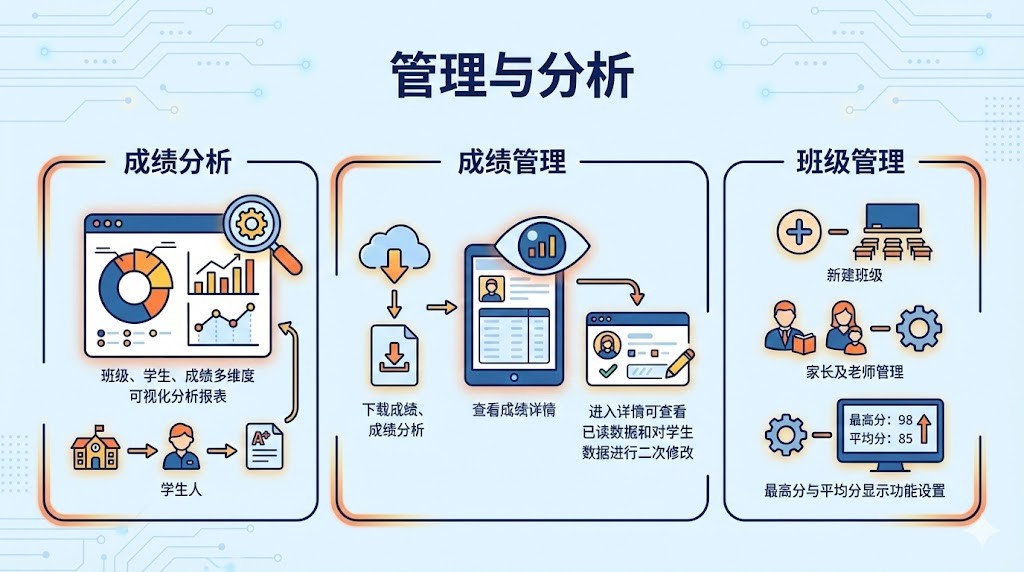US business schools have always enjoyed a high international reputation. Among top 50 global business school ranked by the Financial Times in 2019, 25 are from the US. Business still remains as a popular major amongst Chinese students, with nearly 20% of the 370,000 Chinese students choosing to pursue it in the US. Despite various reasons that have led to a decline in the number of Chinese students studying in the US recently, American universities still welcome international students from China and are willing to provide multi-faceted support. US business schools also pay special attention to the large number of Chinese students studying business in the US.
Recently, five top US business schools issued statements through multiple channels expressing their welcome and recognition to Chinese applicants, and recognize the importance and positive effects they bring to US business schools. These include Harvard Business School, Yale School of Management, Stanford Graduate School of Business, University of Southern California (USC) Marshall School of Business, and Simon Business School at the University of Rochester.
Eileen Chang, HBS MBA Admissions Director, stated the importance of Chinese students:
“China’s importance in the global economy is reflected in the perspectives brought to the classroom by our students from China. These students can speak to what is happening within leading Chinese companies such as Alibaba and Xiaomi or emerging local start-ups in industries like fin-tech and electric vehicles. The unique knowledge they bring from working in China helps their fellow students understand the nuances, challenges and opportunities involved in a country that many students are very curious about.”
Stanford Graduate School of Business (GSB) also issued a statement showing commitment to attracting, educating, and supporting future generations of Chinese leaders who will have great impact on the global business stage:
“Chinese students may enjoy participating in our Asia Business Student Association or our Greater China Business Club. They may choose to share their homeland with other students by serving as a student leader for a global study trip to China. There are many other opportunities – inside and outside of the classroom - like the Stanford-Tsinghua Exchange Program and Stanford China Economic Forum that promote dialogue, an open exchange of ideas, and collaboration, as is Stanford’s tradition.”
Andrew Ainslie, Dean of the University of Rochester's Simon Business School, also expressed the school's welcome and importance attached to Chinese students:
“We make sure to go to China regularly to build the relationships between us and China. So now we have not only a large number of prospective students coming from China, but also a rapidly growing group of alumni. I regularly visit Beijing and Shanghai, and spend time to meet the alumni, prospective students, and deans from other schools. I found that our MS degrees are enormously popular in China. They offer a wonderful way in one year to jumpstart people’s careers and to get some experiences in the US.”
In addition to MBA (Master of Business Administration), numerous other master programs in business also generated popularity among Chinese students. Every year, the University of Southern California (USC) Marshall School of Business receives plenty of applications from Chinese students for popular master's programs in business analytics and finance. In response, Evan Bouffides, Assistant Dean and Director, Graduate Admissions, of the Marshall School of Business, stated:
“The USC Marshall Master of Business Analytics (MSBA) program is a data science STEM program with a business layer laid on top of it. It is one of the longest running MSBA programs in the nation, and top ranked in the world. Meanwhile, The Master of Science in Finance program at USC’s Marshall School of Business is on par with the best MS Finance programs in the country and around the world. A differentiating factor of our program is the flexibility students have to concentrate in various functions within finance, and the long list of electives courses from which they can choose.”
In addition to the welcoming messages from top American business schools, Chinese students also gave positive feedback on the rewards brought by studying business in the US. Yaping Wang, a Chinese student studying at Harvard Business School, talked about the experiences and gains of studying business there:
“The opportunity to meet people from diverse backgrounds and to hear different perspectives and provocations attracted me to Harvard Business School (HBS). I only applied to schools in the US because there were great career exploration opportunities and also because I wanted to meet friends from diverse background and ethnicities.”
Another Chinese student from Yale School of Management Megan Qian also claimed that she garnered a lot from studying business in the United States:
“To me, the value of US MBA is beyond a springboard for career switchers or a reputable name that boosts my resume. It also means getting international exposure, access to brilliant classmates from all over the world, developing interdisciplinary strategic thinking and ultimately becoming a more mature person. I am lucky to have found all of that and more at Yale SOM.”
Committed to creating solutions for business schools and candidates to better discover, evaluate and connect with each other, the Graduate Management Admission Council (GMAC ™) indicates in a recent survey of global talent mobility that the number of international applicants for US business graduate programs in the 2019-2020 academic year decreased by over 13 percent. According to Sangeet Chowfla, President and CEO of GMAC, there are two specific factors to highlight when looking at current international trends in the U.S.:
“The United States still offers a world-class business education and now is a great time to apply. U.S. schools work very hard to create welcoming environments for all their students and they attract candidates from all over the world. Candidates who choose to attend a business school in the United States will gain robust international experience and in a globalized world, future business leaders—of both Chinese and western organizations—will greatly benefit from such perspective. However, there are two competing forces happening currently that are impacting application volume in the U.S. First, quality business schools are emerging in China and around the world and the competition for talent globally is fierce. This is leading to a highly competitive, dynamic marketplace. Additionally, GMAC data shows that the current rhetoric in the U.S. on issues like immigration and visa policy also impact how some candidates are making decisions. When you combine these two realities, you begin to understand why some candidates are selecting schools closer to their region.”
about GMAC™
The Graduate Management Admission Council (GMAC) is a mission-driven association of leading graduate business schools worldwide. Founded in 1953, we are committed to creating solutions for business schools and candidates to better discover, evaluate and connect with each other. We work on behalf of the schools and the graduate management education community, and guide candidates on their journey to higher education, to ensure that no talent goes undiscovered.
GMAC provides world-class research, professional development opportunities and assessments for the graduate management education industry, designed to advance the art and science of admissions. Owned and administered by GMAC, the Graduate Management Admission Test™ (GMAT™) exam is the most widely used graduate business school assessment, recognized by more than 7,000 programs worldwide. Other GMAC assessments include the NMAT by GMAC™ (NMAT®) exam, for entrance into graduate management programs in India, Nigeria, the Philippines, and South Africa, and the Executive Assessment (EA), which supports the admissions needs of more than 160 programs around the world.
Our flagship portal for graduate management education resources and information, www.mba.com, receives 6 million visits a year and features the School Search matching tool and GMASS™ search service, a data-driven technology that helps connect candidates and business schools. These platforms are part of GMAC Connect, a suite of services that help schools attract students through recruiting solutions that marry our market intelligence, data, reach and candidate touchpoints.
Subsidiaries of GMAC include UK-based online publishing company BusinessBecause, a content-rich destination that helps students identify the right-fit business schools during the critical consideration and selection phases of their journey, and The MBA Tour, which supports business schools’ global recruiting efforts by organizing business education-focused events around the world.
GMAC is a global organization with offices in China, India, Singapore, UK and the US. To learn more about our work, please visit www.gmac.com.
此文由 中国教育导报-新闻编辑,未经允许不得转载!: 中国教育导报 > 新闻 » Five Top US Business Schools Welcome Chinese Students to Study Business in the U.S.








